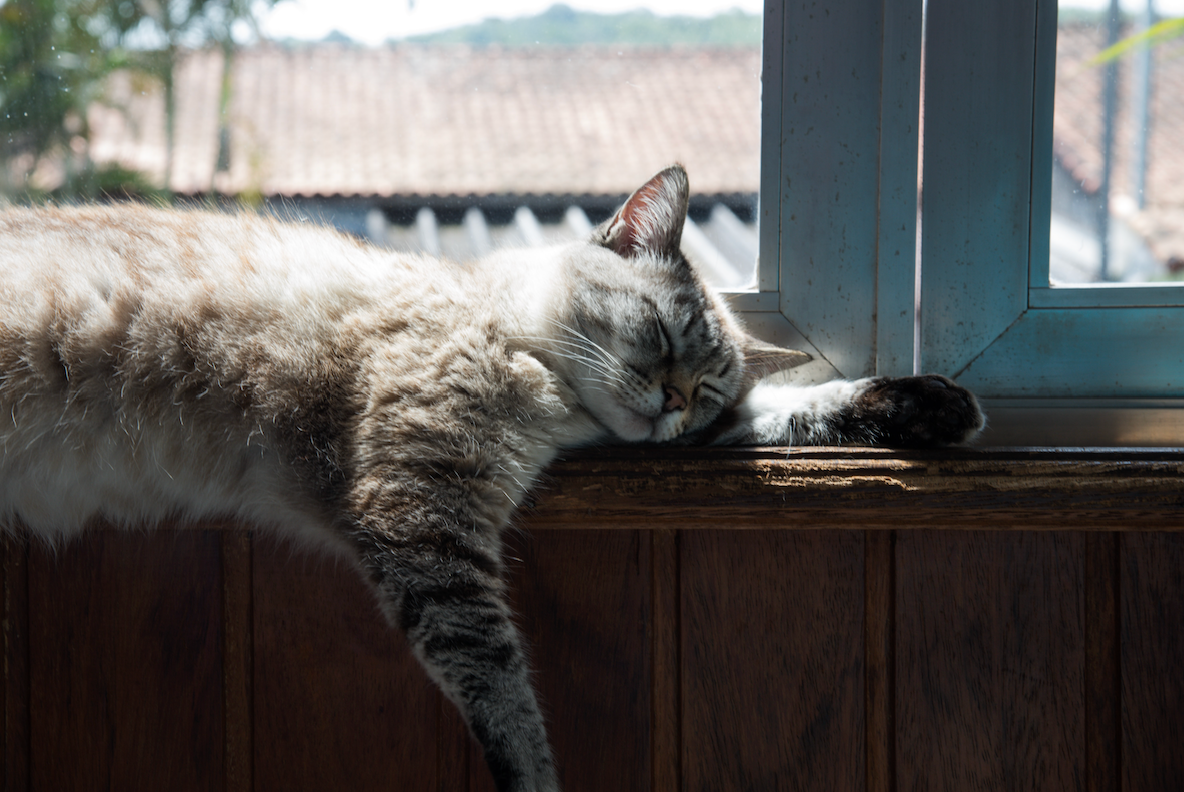Does My Cat Need Probiotics After Antibiotics?
March 20, 2023

Probiotics are necessary following antibiotics, or, better yet, on a regular basis. A significant amount of your cat’s immune system resides in their gut, and antibiotics damage the gut’s delicate balance of good and bad bacteria.
One of the most common reasons cats get diarrhea is because they were given antibiotics. Antibiotics non-discriminately kill all the bacteria in your pet's body, including the beneficial bacteria. These good bacteria help protect your cat's body against bad bacteria, and without the proper balance of good and bad bacteria, your cat's digestive system can become more vulnerable to infection and disease.
Despite the negative effects of antibiotics, there are times when your cat truly needs them, and they should absolutely be provided in these cases. However, there are ways to help protect your cat when antibiotics are necessary.
Antibiotics for Cats
Antibiotics can be a lifesaving veterinary intervention, and are most frequently prescribed to treat bacterial infections. If a cat has a viral infection, antibiotics will not help.
Antibiotics may also be used for preventative measures, and are common during these situations:
- Spaying or neutering your cat
- Routine dental work
- Following exposure to an infectious disease such as feline leukemia virus (FeLV) or feline immunodeficiency virus (FIV)
- Prior to boarding your pet at the veterinarian's office
- Any time you plan on traveling with your cat in the car or plane
Most Common Types of Feline Antibiotics
Antibiotic medications are prescribed by your veterinarian based on your pet's medical history and current symptoms. The type of antibiotic prescribed will depend on the type of infection being treated.
The most common types of antibiotics given to cats are:
- Penicillin: Broad spectrum antibiotics which work against many types of bacteria
- Cephalosporins: Work against gram positive bacteria and some gram negative bacteria as well as some viruses
- Clindamycin: Clindamycin is sometimes combined with other antibiotics (such as amoxicillin) that are effective against specific types of bacteria that cause cat health problems like UTIs or enteritis (inflammation of the intestines)
- Macrolides: Work against both gram positive and some gram negative bacteria and certain protozoa (single-celled organisms)
What Are the Side Effects of Antibiotics on Cat Gut Health?
The most common side effect is diarrhea, which usually occurs within 24 hours after administration of the antibiotic. Cat diarrhea after antibiotics can be mild, moderate, or severe, depending on the type of medicine given to your cat. Some antibiotics may cause constipation or an upset stomach in cats as well.
Less common side effects include vomiting, nausea, and loss of appetite within 24 hours after taking the medication. If these symptoms occur, contact your vet immediately because they could be signs of an unwanted reaction or toxicity in your pet's body due to the antibiotic being taken for too long or at a dose too high for them to handle.
Only Use as Needed
Bacterial infections are one of the leading causes of death in cats. If your cat shows any signs or symptoms of a bacterial infection, such as discharge from their eyes or nose or sneezing and coughing, you should bring them to the veterinarian as soon as possible. If your cat is showing signs of infection, they will likely be prescribed an antibiotic to clear up the symptoms.
However, you should only utilize antibiotics when absolutely necessary. Not only do antibiotics cause dysbiosis (imbalance) in your cat’s gut, but taking too many antibiotics can also lead to antibiotic resistance.
The use of antibiotics in veterinary medicine is increasing year over year. And, it's a dangerous problem. Antibiotic resistance occurs when bacteria develop the ability to defeat an antibiotic and survive its effects.
If the resistant bacteria are present in your cat, they can transfer their resistance to other bacteria or multiply, which makes them much harder to treat with antibiotics. This can lead to a serious illness requiring hospitalization or even death in severe cases
Your veterinarian will be up to date on best practices, and will prescribe antibiotics only when medically necessary. But, you can always ask questions and be intentional about not overusing antibiotics.
Probiotics for Cats After Antibiotics
Probiotics are live bacteria and yeast that help maintain a healthy gut environment. They compete with other bacteria for food and space, which keeps disease-causing bacteria from taking over. They also produce vitamins and enzymes that are essential for digestion. Because they are living microorganisms, probiotics must be taken regularly to maintain their effect on the gut.
That’s where Daily Cat comes in. Daily Cat contains a strain of good yeast known as Saccharomyces boulardii that, unlike most probiotics, is not killed even if your cat is taking antibiotics.
Because S. boulardii is a yeast, not bacteria, it is resistant to antibiotics, and can help protect your cat’s gut microbiome even while they are receiving antibiotic treatment.
Supporting the Cat Immune System
S. boulardii, when taken daily, can also help support your cat’s immune system, and assist with reducing the risk of illness. How does it support the immune system, exactly?
The immune system is the body's defense against disease. It protects your cat from pathogens - harmful microorganisms such as viruses or bacteria - by recognizing them as foreign invaders and attacking them with antibodies.
When your cat's immune system recognizes a pathogen, it produces white blood cells known as lymphocytes that attack the invader. This process is called lymphokine production. Lymphocytes also release chemicals called cytokines to stimulate other parts of the immune system to respond to the pathogen.
Probiotics help improve the response of the immune system by making more cytokines and making natural killer cells work better. With these natural systems working more efficiently, inflammation and inflammatory cells related to infection or allergies may decrease as well.
Get Started with Feline Probiotics
Providing your cat with daily probiotics is easy. All you need to do is grab a jar of Daily Cat and add one scoop (for an adult cat) or half a scoop (for a kitten) to their food each day. By offering this supplement, you will be adding 2.5 billion CFU’s of scientifically-backed Saccharomyces boulardii to your cat’s diet regimen.
In addition to providing your cat with probiotics, Daily Cat improves your cat’s overall health by adding in prebiotics, amino acids, and digestive enzymes.
Most importantly, remember that Daily Cat is a highly effective and valuable probiotic for cats on antibiotics and cats recovering from antibiotic therapy.
Grab a scoop today and your cat will be on their way to a properly balanced gut microbiome and better overall health!
Read More:
The effects of nutrition on the gastrointestinal microbiome of cats and dogs
Saccharomyces boulardii Probiotic for Pets
Antibiotic-resistant infections in pets: What now?
Companion animals symposium: Microbes and gastrointestinal health of dogs and cats

